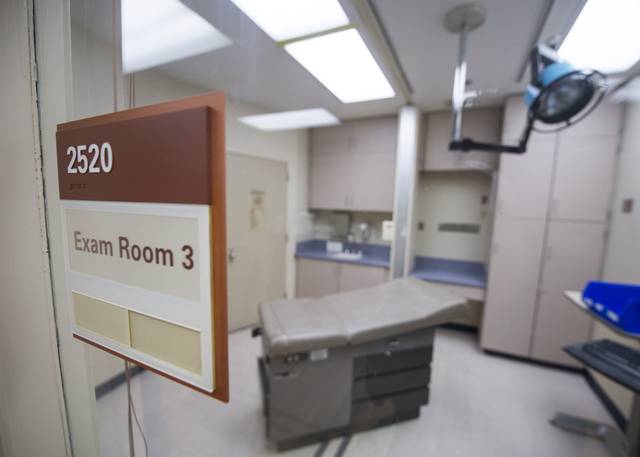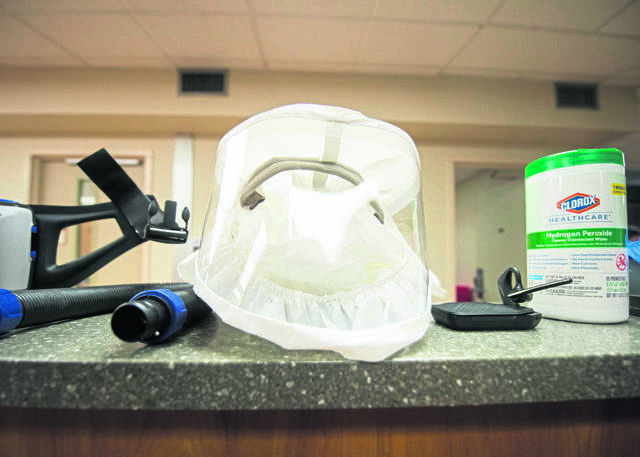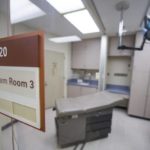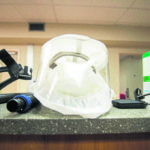If the coronavirus pandemic spreads as predicted, Western Pennsylvania hospitals will be woefully underprepared, according to a recent study.
But one regional hospital system, UPMC, is confident it can handle the volume.
“We anticipate that most patients with suspected or confirmed covid-19 will not need to be admitted and will recover at home,” officials said in a statement. “For patients who are admitted to a health care facility, we have a multitude of hospital and nonhospital locations throughout our 40-hospital network that we can leverage for different types of clinical needs.”
The independent study from the Harvard Global Health Institute and ProPublica suggests that like much of the country, hospitals in Western Pennsylvania will be overrun by an influx of coronavirus patients if the pandemic continues to spread at its current rate.
The study compares how many beds will be needed to the number of beds available in the region. It does so by looking at several scenarios factoring in varying percentages of the population infected and over different lengths of time. The study looked at what would happen if 20%, 40% and 60% of the population is infected, and if those infections happen over a 6-, 12-, or 18-month period.
“Vast communities in America are not prepared to take care of the covid-19 patients showing up,” Dr. Ashish Jha, director of the Harvard Global Health Institute, told ProPublica.
The study was published the same day Allegheny County Health Director Dr. Debra Bogen announced that 40 to 60% of Western Pennsylvanian adults could get infected with covid-19 before the pandemic winds down.
In a telephone conference open to the public, Bogen sat in a room with other health and public officials.
“Sadly, eventually, everyone in this room, or at least half of us in this room, will get this infection,” she said.
If Bogen’s assessment is correct, the region will need to drastically expand capacity, according to the Harvard study.
Based on the region’s adult population of approximately 2.9 million people, if 40% of the population is infected, the Health Institute estimates that more than 197,000 people in Western Pennsylvania will be hospitalized at some point — with more than 43,000 needing ICU care. A 40% infection rate is considered the “moderate” estimate.
In this scenario, the study predicts that 480% of the region’s available hospital beds will be needed within six months, and 688% of available ICU beds. But even by the study’s conservative estimates, where only 20% of the population is infected, the region will come up short.
If 60% of Western Pennsylvanian adults are infected, Health Institute data predicts that 296,000 people will be hospitalized and 65,000 will need ICU care. 720% of available hospital beds, and 1,032% of available ICU beds will be needed in six months.
As of 2018, there were just over 8,000 total hospital beds in Western Pennsylvania, 66% of which were occupied. That leaves approximately 2,740 open for new patients. Intensive care units account for 420 of those available beds. ICUs are best equipped to handle coronavirus patients.
The region also has a relatively large percentage of residents over the age of 65 — 19%, according to the Health Institute. This population is known to be of greater risk of infection and hospitalization from the virus.
Local hospital systems are preparing facilities for maximum capacity, as news trickles in from around the world of patient overflow.
UPMC officials say an overflow is unlikely, but declined to share the exact total of beds and ventilators are available within the hospital system.
“Be assured that UPMC facilities and staff are well-equipped to properly care for patients,” the statement reads.
At Excela Health, a hospital system headquartered in Greensburg, there are 51 intensive care unit beds available with ventilator capacity, as well as additional emergency transport capacity across the system. Dr. Carol Fox, chief medical officer, said Excela also has negative-airflow rooms in each facility, and the ability to create more, if necessary.
“Our medical staff is at the ready to meet the needs of our community,” Fox said.
Hospitals across the country are struggling with a critical shortage of medical supplies, particularly when it comes to N95 surgical masks and ventilators. The White House coronavirus task force announced Wednesday that the country is ordering and stockpiling ventilators from manufacturers. The stockpile currently numbers more than 10,000, and is expected to increase by several thousand more, according to Vice President Mike Pence.
“We’re securing the increase in ventilators, the increase in masks, gloves, eye protective care, garments that are all necessary to lean forward,” Pence said. “And we’re confident we’ll be able to accomplish that with the incredible cooperation of the supply chain that exists in America today.”













